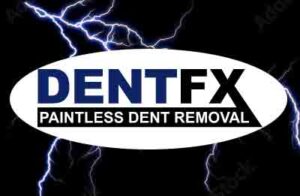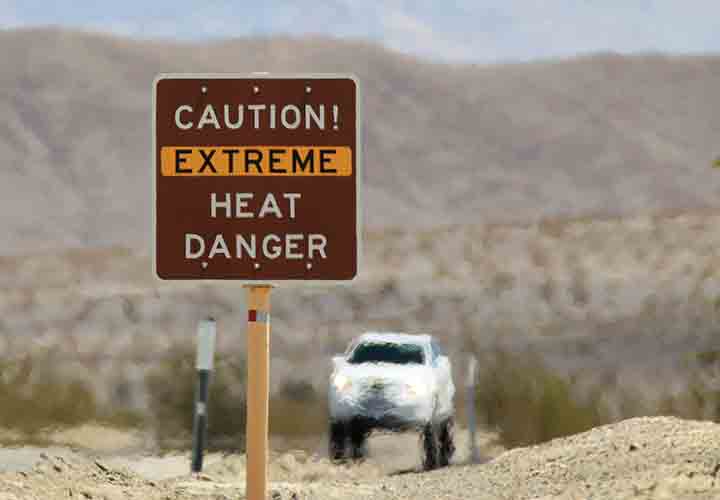When the mercury soars in North Carolina, many of us get into our cars, crank the AC, and head to the beach, to the mountains, or on a road trip to beat the heat. Summer typically means freedom and fun, but high temperatures can be hard on us. Remember, though, that extreme heat can also be hard on your vehicle. How can you prepare, keep your car in top shape, and, most importantly, stay safe? Read on for a few tips from the experts.
Feeling Hot, Hot, Hot: Here’s What Summer Does To Your Car
We know that heat and humidity can make us feel sluggish, irritable, and very sweaty! To counter the summer temps, we use fans and air conditioners. We drink lots of water, exercise early or later in the day to avoid peak heat, and grill outdoors to avoid overheating the house. But how does heat affect our cars, and what can we do to prevent damage and danger?
Tires
Heat can cause the rubber in your tires to dry out, overheat, and build up too much pressure, putting you at risk for a blowout. To avoid this dangerous situation, make sure your tires are properly inflated. There is a sticker on the inside of your driver’s door that tells you the correct PSI. Get a tire gauge, take a look, and inflate to the optimal level.
It’s also a good idea to check out your tires for cracks, bulges, or wear. Paying to replace them now can save your life.
Battery
Despite popular belief, car batteries are more likely to fail in the summer than in the winter. Heat drains the battery, and it can cause issues with charging systems and alternators. Excessive heat also causes the battery fluid to evaporate.
Make sure you have your battery’s charge checked before summer, replace it if necessary, and to keep your car in the shade or in a garage as much as you can.
Engine Oil
When the temperature rises, it depletes the essential additives in your oil. This can prevent it from lubricating engine components properly, cooling, and protecting your vehicle from significant (and costly) damage. Heat also increases the risk that sludge will form and prevent oil from reaching important parts.
Check your oil regularly, and plan on more frequent oil changes throughout the summer. Your mechanic can also recommend an oil that is optimal for high temperatures.
Coolant
Coolant is important no matter what time of year; it keeps your car from overheating, and it also protects your engine components and radiator from wear and tear. Without proper coolant levels, you can do long-term damage to your car. It can even leave you stranded if your engine overheats.
Have your coolant flushed and replaced ahead of summer. If you haven’t done so, have your mechanic take a look and advise you as to the right fluids for your vehicle and driving needs.
Gas
You may have heard the myth that filling your gas tank on very hot days is dangerous as it can expand – and explode! Luckily, this is complete hogwash. Cars are designed to vent pressure, so you are not in danger of recreating a scene out of a Hollywood blockbuster. So, fill ‘er up. It is true, though, that gas does evaporate more quickly in extreme heat. Make sure you have enough in the tank for your trips.
Aesthetic Issues
Extreme heat can impact your vehicle’s appearance. It can crack your paint job, fade your upholstery, and wear rubber and plastic trims. Just like we protect our skin with sunblock, it’s a good idea to apply a protective wax or sealant to prevent UV damage.
Don’t Forget To Protect Yourself From Extreme Heat
Many of us are used to carrying an emergency kit when dealing with winter driving conditions. As soon as spring and summer hits, we think we’re in the clear. However, it is important to swap out your essentials to prepare for the season. Include:
- Road flares
- At least one gallon of water (check levels periodically if the container is unsealed) and a few water bottles
- Jumper cables
- Portable battery charger (check its charge periodically to make sure it’s topped off. Find a model that can also charge your cell phone)
- First aid kit
- Extra sunblock
- Reflective emergency blanket (can be used for shade/sun protection)
- Hats (wide-brimmed hats are best but any head covering is better than nothing)
- Tow strap
- Tire pressure gauge
- Non-perishable snacks (e.g. jerky, nuts, energy bars)
It is also a good idea to have a roadside assistance plan, such as AAA.
Stay safe this summer whether you’re heading to work or on a road trip with the family. If your travels result in memories and dents, dings, scratches, and scrapes, give the Dent FX team a call. We’ll get you fixed right up and back out on the road in no time.


